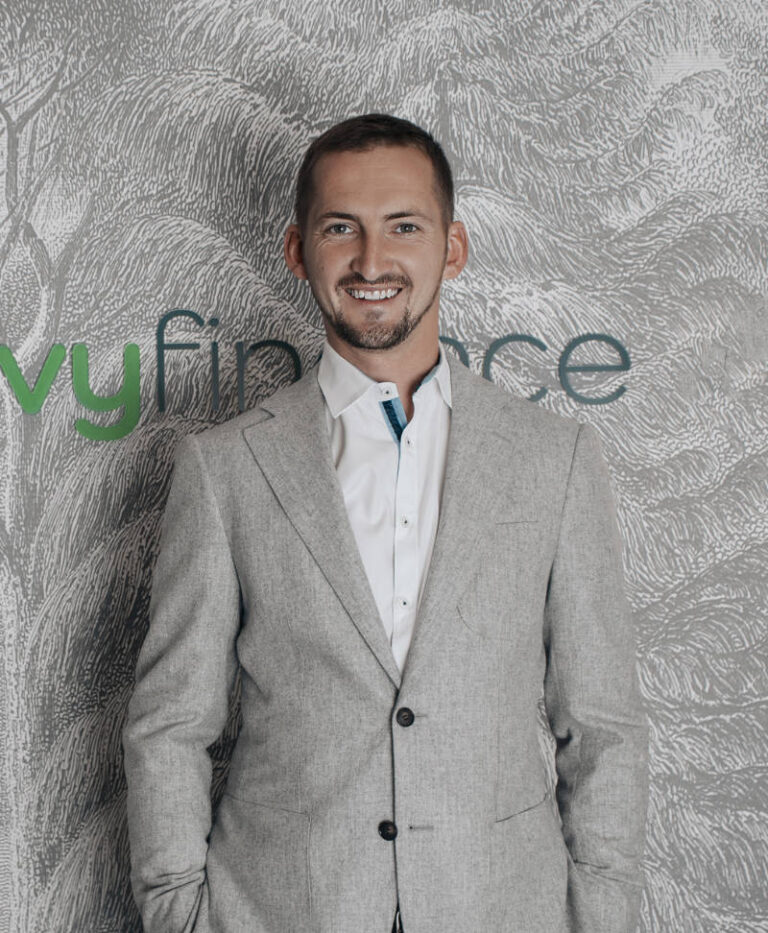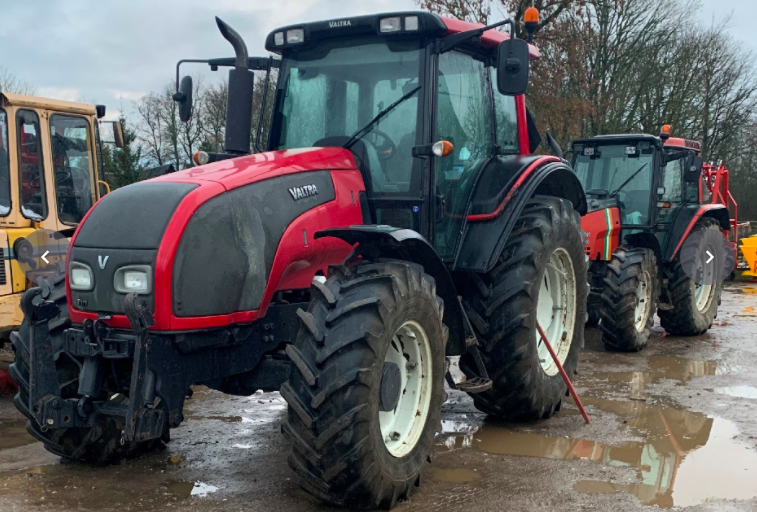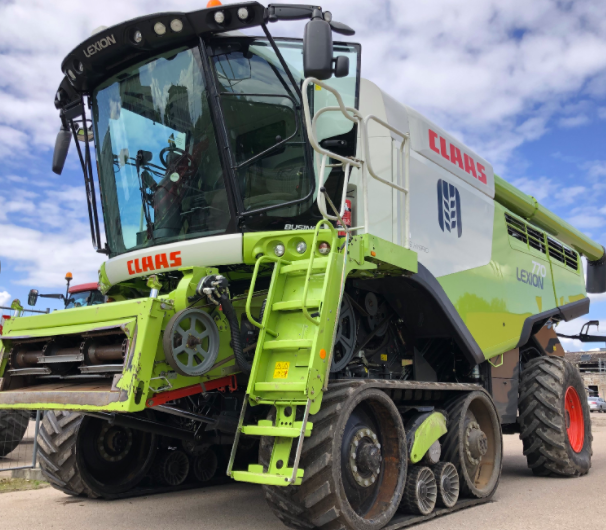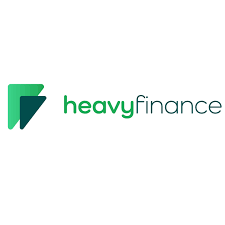Would you like to take advantage of the EU subsidies that gush out of Brussels every year?
The European Union spends a gigantic amount of money on farm subsidies every year. It was €58 billion in 2018. It’s a controversially large amount of money. If, like most of us, you don’t own a farm then you have probably assumed that you would never get a share of this money. So how can you benefit from these funds? By lending to people who receive big farm subsidies each year. That’s where HeavyFinance comes in.
HeavyFinance is a fairly new P2P site, but the team behind it has experience. Laimonas Noreika is the founder and until recently CEO of Lithuanian P2P site Finbee. As he explains below, he has started HeavyFinance because he sees a much larger opportunity providing finance to smaller and mid-sized farmers across Europe, which are under-served by banks. His co-founders add the needed lending experience in this field.
HeavyFinance secures most of its loans on ‘heavy’ assets such as harvesters, tractors and other expensive equipment. Notaries register a lien against each asset. LTVs vary but are typically 50-60%, and interest rates are 10-12%. Most loans amortise over 36 months.
The HeavyFinance team are quick to point out though that they consider much more than the value of the asset being financed when they make their lending decisions. They also consider the value of the farms/land and review the records of how much income it has been generating. This is where the EU comes in to play. The income of most of the borrowers is heavily supported by various subsidies. This means that loan repayments should be affordable in most cases, even if farm production is lower than expected. And the land owned by borrowers tends to be in high demand currently due to the subsidies that are generated. Overall, we think these factors make the risk versus reward dynamic of HeavyFinance loans very interesting.

Laimonas, you were the founder and CEO of (Lithanian P2P site) Finbee. Why did you decide to leave and start a new venture?
I was a founder and CEO of FinBee for almost six years. Together with the team, we’ve achieved great results for investors community and generated one of the largest net returns in the whole peer to peer market. However, the consumer lending business is hard to scale to different geographies due to local regulations in each country. Scaling to a global financial institution has always been my personal dream, therefore, I’ve decided to move on and successfully sold my shares to my partners. I’m humbled and honoured that Finbee is still operating successfully based on values that were settled by the founding team
HeavyFinance is focused on the agricultural sector and equipment loans. Can you explain who you have brought into the team that has strong knowledge in this sector?
Actually, the idea of creating a new generation financial product to provide farmers with more access to capital came to my friend Rytis Darginavičius, who is now one of three co-founders of HeavyFinance. Having more than 15 years of experience in the heavy equipment sector with three successful companies founded himself, he has in-depth knowledge about farmers, their financial situation and specific needs for equipment.

Why is there a gap in the market to fill for a player like HeavyFinance?
According to Eurostat, there is around 30 billion euros financing gap in the European agriculture sector. 93% of farmers in Europe have less than 50 hectares of arable land. Being a small farmer means that you are likely to be underserved by traditional financial institutions. However, as the worlds’ population is constantly growing, we need more efficient ways of farming. Injecting more capital is the only way to modernize these farms as there will not be more arable land than we already have.
The gap is so large partly due to tightening regulations on banks that is pushing them to focus on large farms and corporations leaving smaller players behind. Additionally, for many traditional financial institutions issuing rather small loans does not generate much profit. Therefore, HeavyFinance is filling this gap by providing a specialized financial product for small and medium farmers.
What is the typical profile of one of your borrowers? Why do they need finance, and why do they come to you?
Our clients are mainly small and medium farms aiming to increase productivity. Currently, the majority of them grow grain crops and receive revenue twice a year after the production is sold and when they receive subsidies. Therefore, our repayment schedules corresponding the periods when farms get revenue, are vital to these businesses. Besides, many farmers want to have more working capital, thus they prefer taking loans backed by more heavy equipment rather than making a down payment.
Actually, these and other advantages of our product are attractive to big farms as well. Several farmers having more than 500 ha of arable land have borrowed money from the HeavyFinance investor community. To summarize, people investing through our marketplace can expect to find a wide range of farmers and deals, starting from very small ones and ending with large farming companies.

Let’s talk farm subsidies. How do your borrowers benefit from subsidies?
Investors benefit from all kinds of EU and local government schemes to support agriculture because it ensures more security in the sector. For example, many countries have a Basic Payment Scheme that supports farmers based on entitlement for every hectare of eligible farming land they are claiming on. Additionally, there are higher subsidies for ecological farming. These subsidies are beneficial to investors as well. We have already seen that in case of a drought or a flood entitlement rate tends to increase in affected areas. That helps farmers to run their businesses and repay loans to lenders.
You can also see some farmers on our platform who got partial funding from the Improving Farm Productivity scheme and came to HeavyFinance investor community for the rest. If the farm gets this type of funding, there is an indication that it has a strong business plan and a long-term growth vision.
Furthermore, some countries have interest subsidy schemes. It basically means that the government pays part of the interest on a loan. Let me give you a hypothetical situation: as an investor you can earn 12% interest from investing in a loan, while the borrower will repay 6% and the rest will be repaid by the EU or the local government.
What factors are you taking into account when making credit decisions? You obtain valuations of the machinery but what other things do you analyse?
HeavyFinance is a financial institution which underlines and scores clients internally. Our credit scoring mechanism takes in mind such factors as the reputation of the farmer, LTV ratio of the pledged asset, change in revenue, change in profits, size of arable land, cashflow available to serve the loan, equity ratio and other factors. After we evaluate these factors our credit scoring mechanism gives an output of A, B, C or D ratings which can be found on our platform. However, D ratings are not listed as they are found to be not credible to receive a loan.
If you need to repossess an asset, what is the procedure? Once you repossess the asset what happens next? How easy is it to sell?
Contracts to secure loans by heavy equipment or land are signed in the notary office and registered in mortgage registry. These assets therefore cannot be sold, transferred or become a subject of the recovery process by other institutions. Only HeavyFinance has a right to claim on these assets in case of default. However, we will first of all try to recover from the business itself and only then aim to sell the pledged asset.
It’s very important to understand that heavy equipment is a very liquid asset as it is being traded in the international market. For example, if we would make a discount of let’s say 15 per cent of the value, heavy-duty vehicle easily finds a buyer the next day. The other factor which should be taken in mind is that the farming industry is one of the least affected industries in times of financial crises. Therefore, there is always a liquid secondary market, unlike real estate, for example.
How stable are the prices of the types of equipment that you provide finance for?
There is one example I would like to give. New combine harvester costs around 300.000 euros. Typically, it works only 200-300 hours per year. We spend much more time in traffic jams than these machines are actually working per whole year. Therefore, the depreciation of the price hardly exceeds 7 per cent per year and tend to become even smaller when the heavy-duty vehicle gets older.
You are regulated in Lithuania. What steps have you taken to ensure that investor funds are protected and ensure that the platform operations meets future EU rules?
We are a regulated financial institution under European crowdfunding regime. We are a regulated financial institution under European

crowdfunding regime. This regime requires segregation of clients’ funds, therefore we use reputable Electronic money institutions as our partners to ensure that clients’ funds are segregated from our accounts. In case of us going belly up, investors can be sure that there is a contingency plan and their contracts with farmers do not disappear. These small details of regulation are very important, especially having in mind recent developments in the p2p industry.
Some investors tend to choose not regulated platforms and expect that everything will go well. It’s much easier to run a business when you are not regulated, but we believe that regulation is vital. It gives a decent layer of protection to the investor community and I believe this should be the first thing when choosing where to put your money.
Who owns HeavyFinance? Do you have any plans to raise equity?
The company was founded by 4 experienced founders and later joined by the angel investor and international startup accelerator Startup Wise Guys. We’ve just recently closed our pre-seed round (€200k) and are expecting to close our seed round in Q2 2021. As we see a lot of potential to expand across the EU, we want to become a leading borderless marketplace where farmers meet investors.
You plan to expand into Portugal and Bulgaria next. Why did you choose those markets? What other countries are in the pipeline potentially?
We are looking for markets where the farming industry is underserved by traditional financial institutions, while debt-repayment behaviour is appropriate. Our research showed that our product has a great fit Bulgaria and Portugal with the financial gap and investors security in mind. However, the funding gap exists in the whole CEE region, thus, we will definitely start operating in more countries soon.
You started the platform only fairly recently. How many loans have you funded so far? Are you happy with how things have gone so far? What are your goals for 2021?
We started this June and with the help of our investor community, we are already helping more than 30 farms. The average loan size is around 60.000 euros. We expect to end this year with around 2 Million euros of loans financed through HeavyFinance. These numbers will increase sharply as we start serving farmers in more and more countries. However, the financing gap could not be filled without P2P investor community and we are humbled that some well-known P2P investors registered on our platform and started investing very early. We will continue providing great investment opportunities generating 10% net return for investors.
Final thoughts
We think that HeavyFinance could be an interesting option for many investors to consider adding to their portfolios. HeavyFinance provides some interesting diversification benefits. Many investors will already have enough ‘buyback’ and real estate loans in their portfolios. HeavyFinance loans offer something different. The farming sector also has less correlation to economic shocks than many other industries, particularly when subsidy revenues are taken into account. The interest rates available seem sufficient for the risk profile.
The biggest drawback right now is the short period that HeavyFinance has been in business. It will take time for the team to create a track record. In time investors will want to see that they can create a portfolio with low levels of defaults and make strong recoveries when loans become non-performing. However, given the experience and record of the team involved, we are much less concerned about that than normal for new P2P sites. It is good to see some variety added to the P2P options available and we suspect that many investors will test out HeavyFinance during 2021.

Pingback: Can agriculture become the next big P2P asset class? We speak to LendSecured
Pingback: I miei investimenti - Dicembre 2020 - P2P Investing
Nice – but not for German people?
Cannot register – why
BR
EagleEye
Thanks for this article.
I’m curious to see if this new site will gain traction in the P2P community.
Regards